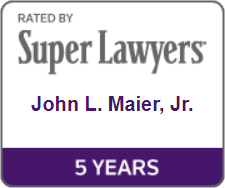“Reasonable” But Not “Perfect”: The Standard For Employer Accommodations Of Disabled Employees Under The Americans With Disabilities Act
The principle that disabled individuals should not face discrimination from public or private actors is fundamental to Americans’ sense of fairness and justice. The federal legislature codified that principal by enacting the Americans with Disabilities Act (“ADA”) in 1990, and the ADA Amendments Act of 2008.
“Reasonable Accommodation”
The keystone of the ADA’s impact on the employment arena is its “reasonable accommodation” standard, which mandates that an employer provide a reasonable accommodation for an employee’s known disability, unless the accommodation would impose an undue hardship on the employer.
This begs the question: how far must an employer go to make an accommodation “reasonable”? Regulations adopted under the ADA define a reasonable accommodation as “modifications or adjustments” that “enable[s] an individual with a disability who is qualified to perform the essential functions of that position . . .” This definition offers some guidance, but not a bright-line test for determining when an accommodation is “reasonable.” Thus, federal courts have acknowledged determining reasonableness is “a fact-specific, case-by-case inquiry.”
The Noll Decision
Now, however, a recent case from the U.S. Court of Appeals for the Second Circuit, Noll v. IBM,1 has helpfully explained that in order to be reasonable, an accommodation needs to be “effective,” but not “perfect,” or, “the very accommodation most strongly preferred by the employee.”
The plaintiff in Noll was a deaf individual who worked as a software engineer for IBM. During Noll’s employment with IBM, IBM maintained a company-wide intranet that hosted thousands of video and audio files, including official management messages, training and educational videos, and employees’ personal photos.
IBM did provide Noll with the following accommodations so that he could utilize the video and audio files: upon Noll’s request, it typically provided him with transcripts of audio and video files; and, it made available on-site and remote American Sign Language interpreters, for both videos and in-person meetings. Noll contended that while the transcripts were generally available within five days of a request, they sometimes took longer; that the links to online transcripts were sometimes broken; and, that it was “confusing and tiring” to use interpreters for videos because he had to look back and forth between the screen and the interpreter.
Noll contended IBM should have provided the following accommodations: making sure that all video files were captioned at the time they were posted; and, ensuring that all audio files had transcripts at the time they were posted.
So, were IBM’s accommodations reasonable, even though they fell short of Noll’s desired accommodations? The Noll decisively answered “yes,” and even found the accommodations were “plainly reasonable,” and therefore upheld the district court’s grant of summary judgment to IBM. In reaching its conclusion, the court honed in on the word “effective.” Although the court credited Noll’s testimony it was “tiring and confusing” to look back and forth between the screen and an interpreter, the court found “this disadvantage does not render interpretive services ineffective.” (emphasis added) Critically, the court noted, “[t]here is no evidence that the interpreters were unqualified or failed to translate fully and accurately,” which would indicate the accommodations were ineffective, and therefore unreasonable. Because the interpreters could accurately translate both video and audio, the accommodations were effective, and therefore, reasonable — even if they weren’t “perfect,” or Noll’s most preferred accommodation, on-screen captioning.
Post-Noll
Noll places a meaningful limitation on the concept of a “reasonable accommodation,” and will offer a useful guide to employers in determining the extent of accommodations they must offer to disabled employees. Following Noll, the critical question is whether accommodations will effectively allow the employee to perform the essential functions of a job.
Because federal appellate court decisions are persuasive authority in the other federal circuits, Wisconsin employers can expect the Seventh Circuit Court of Appeals and local federal district courts will soon start adopting the logic of Noll. In fact, the United States District Court for the Eastern District of Wisconsin already cited Noll in a recent decision2, finding, like the Noll court, that “an employer is not liable under the ADA merely because it failed to provide a disabled employee with the specific accommodation that the employee requested.”
Thus, Noll can be expected to have a real impact on employers and disabled employees across the country, including in Wisconsin, in the near future.
1 Noll v. International Business Machines, 787 F.2d 89 (2nd Cir. 2015)
2 Ott v. H & M Hennes & Mauritz LP, 2015 WL 6393821 (E.D. Wis. 2015)




